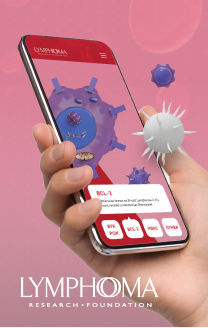We’re back with another rendition of “Name That Acronym’! America’s (or at least Gravity Jack’s) favorite game, where we take an acronym from the tech industry’s vernacular and explain what it is and how it works. This week, we are breaking down how to use the letters SDK at your next social event and instantly become the life of the party. Heads will turn as they overhear you saying, “did you hear about Space Dogs Kayaking? Apparently, it’s a top secret government program the feds are calling SDK”.
Now, before you call your local representative and demand action on Space Dogs Kayaking, it’s important to note that SDK actually stands for software development kit. In our industry, an SDK is a platform-specific (Unity, Python, iOS, etc…) tool that helps programmers in their quest to develop the next cutting-edge mobile app, website, or video game. Think of it as a set of guidelines that should be followed while writing code in order to obtain a specific outcome for your project.
Inside an SDK, developers will find a set of code examples, tools, guidelines, and a treasure trove of other relevant information that serve as an aid in the creation of a project. Instead of having to create all of the world’s apps themselves, companies like Apple, Android, and Microsoft released the blueprints on how to create content for their platforms. Since SDKs, operating systems, and the devices they are running on are constantly being updated, it is crucial for our team to stay up to date on these changes and how they may affect past, current, and future projects.
Additionally, software development kits are necessary because they allow developers the ability to create the same feature set across multiple devices. The code that was written for an iOS application won’t be compatible with Android devices and vice versa. Since we often have clients that want their projects to be released on both platforms, it’s critical that the SDK is compatible with each platform in order to achieve the same outcome for each device.
While SDKs are not required to create a mobile app, they do however provide an important foundation that helps the overall stability and performance of the app. On top of serving as the crucial structure of the app, SDKs can help developers with monetizing their products, tracking user interactions, A/B testing, marketing purposes, and a whole lot of other solutions that bring incredible features to projects.
All of these SDKs and their features are great and all, but developers need to be careful when selecting which SDKs they want to integrate. If a user finds out that your app is the reason behind short battery life, slow performance, or heavy CPU usage — consider the app deleted. Finding the right combination of SDK’s for an app can be a balancing act, which our team is up for. After all, we did receive a letter in varsity SDK gymnastics.
Just when you thought SDKs couldn’t get any cooler, in walks Apple’s ARKit and Android’s ARCore! These SDKs help our team create augmented reality (AR) experiences for iOS and Android applications for clients. Their unique ability for light estimation, motion detecting, and plane recognition help take AR experiences to the next level – no pun intended. Apple has even announced the release of ARKit 2 which has features like multiplayer AR games and the ability to drop an AR object in the real world, leave it, and pick back up where you left off at a later time — with it still in the same spot!
While Space Dogs Kayaking sounds like an awesome top-secret government program, our team thinks software development kits are even more awesome. They give us, and you, the power to create and enhance amazing mobile and web experiences! Curious about how the addition of an SDK could benefit your app? Feel free to reach out to our team and we would be more than happy to discuss your current questions and concerns as long as they aren’t about space dogs kayaking!





